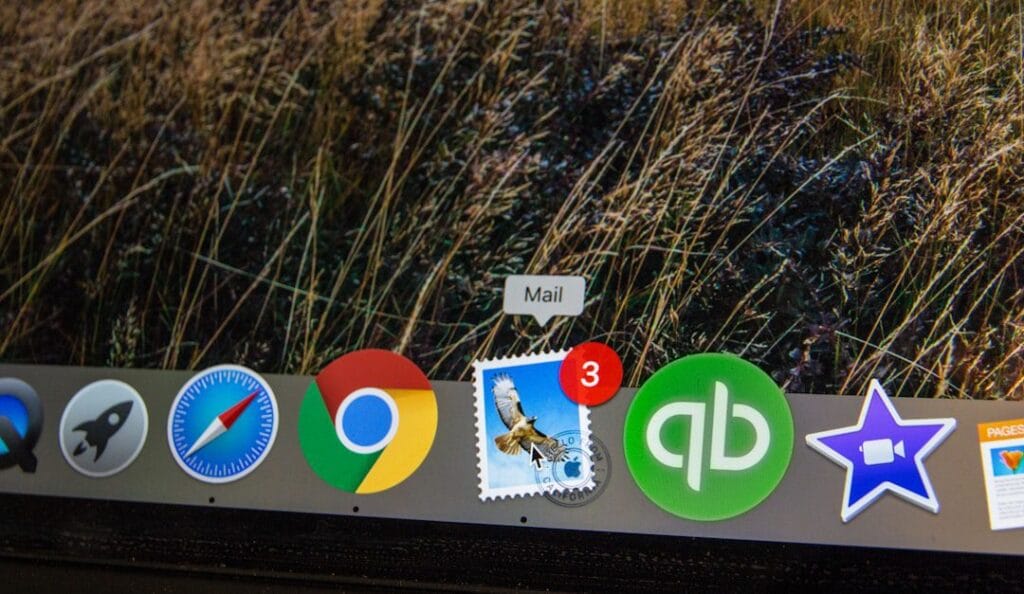B2B lead nurturing is a marketing strategy that aims to develop and maintain relationships with professional prospects throughout the sales cycle. This approach is based on providing relevant and personalized content to potential leads, in order to gradually guide them towards a purchasing decision. The main components of B2B lead nurturing include:
1.
Segmenting leads based on their specific characteristics and needs. 2. Creating content tailored to each stage of the purchasing journey.
3. The use of various communication channels, such as email marketing, social media and webinars. 4.
Automating nurturing processes for efficient lead management at scale. 5. Continuous analysis and optimization of nurturing campaign performance.
The benefits of lead B2B Nurturing include improving the quality of leads, increased conversion rate , reduction in sales cycle and strengthening customer loyalty. This strategy requires a long -term approach and an in -depth understanding of specific needs and challenges to the B2B sector. To implement an effective nurturing strategy, companies must invest in marketing automation tools, develop expertise in B2B content creation and align their marketing and commercial efforts.
Measuring and analyzing KPIs is essential to evaluate the effectiveness of campaigns and adjust them accordingly.
Summary
- Leads B2B 's Nurturing is essential to maintain relationships with prospects and convert them into customers.
- Personalized content is crucial to grabbing leads' attention and keeping them engaged throughout the buying process.
- Emails are an effective tool for nurturing relationships with leads by providing them with relevant information and guiding them through the purchasing process.
- Webinars and virtual events provide an opportunity to provide valuable content and interact directly with leads to convert them into potential customers.
- Regular monitoring with qualified leads is essential to maintain commitment and identify sales opportunities.
- Social media can be used to share relevant content, interact with leads and strengthen the relationship with them.
- Measuring and analyzing lead nurturing results helps optimize strategies and maximize the effectiveness of nurturing efforts.
Personalized content for leads
Establish a relationship of trust with prospects
Personalized content plays a crucial role in B2B lead nurturing because it helps meet the specific needs of prospects and guides them throughout their buying journey. By creating relevant content tailored to each step of the process, businesses can build trust with their prospects and help them make informed decisions. Custom content can take different forms, such as blog posts, white papers, case studies, videos, infographics, podcasts, etc.
Segment the target audience to offer suitable content
It is important to segment the target audience based on their interests, concerns and stage in the purchasing process, in order to provide content tailored to each segment. By using analytics and tracking tools, businesses can also collect lead behavior data, such as pages visited, content downloaded, social media interactions, and more. This information can be used to further personalize content and provide a more relevant experience to prospects.
Expected results: stand out from the competition and strengthen credibility
Ultimately, personalized content allows businesses to stand out from the competition, build credibility and expertise, and effectively engage their prospects throughout the buying process.
Using emails for lead nurturing

Emails are a powerful tool for B2B lead nurturing because they enable direct and personalized communication with prospects. By using well-designed and relevant emails, businesses can maintain relationships with their leads, provide them with useful information and encourage them to take action. It is essential to segment the sending list according to the interests and behaviors of prospects, in order to send targeted and relevant emails.
Emails can be used to share educational content , case studies, customer testimonies, special offers, invitations to events, etc. It is also important to automate the process of sending emails as much as possible, using marketing automation tools to trigger shipments depending on the behavior of prospects. This allows you to send the right message at the right time, depending on the specific actions of prospects.
By monitoring email open, click, and conversion rates, businesses can also measure the effectiveness of their campaigns and make adjustments to optimize their results. By combining a personalized approach with intelligent automation, emails can play a key role in B2B lead nurturing.
Webinars and virtual events for lead nurturing
| Date | Event title | Number of participants | Lead conversion rate |
|---|---|---|---|
| 10/05/2021 | Webinar on marketing automation | 150 | 25% |
| 25/06/2021 | Virtual Lead Generation Workshop | 100 | 30% |
| 15/07/2021 | Online conference on lead nurturing | 200 | 20% |
Webinars and virtual events are effective tools for B2B lead nurturing because they provide a unique opportunity to directly engage prospects and provide them with valuable information. By hosting webinars on topics relevant to their target audience, businesses can demonstrate their expertise, educate their prospects, and answer their questions in real time. Virtual events can take different forms, such as live presentations, product demos, panel discussions with experts, etc.
They also allow prospects to interact with each other and with the company, strengthening the relationship and driving engagement. To maximize the impact of webinars and virtual events, it is important to promote these initiatives to the target audience and provide engaging and relevant content. It is also essential to collect information about attendees when they register for events, to further personalize communication before and after the event.
By measuring attendee participation, interaction, and satisfaction, businesses can evaluate the effectiveness of their webinars and virtual events, and make improvements to maximize their impact on B2B lead nurturing.
Regular follow-up with qualified leads
Regular follow-up with qualified leads is a crucial step in B2B lead nurturing, as it helps maintain engagement and deepen the relationship with the most promising prospects. Once a lead has been qualified as ready to move on to the next stage of the buying process, it is essential to maintain regular contact to answer their questions, provide them with additional information and guide them towards conversion . Follow-up can be done by telephone, email or through other communication channels relevant to the target audience.
It is important to adapt tracking based on the behavior and specific needs of each qualified lead, in order to offer them a personalized and relevant experience. Regular tracking can also include sending special offers or calls to action to encourage conversion. By proactively following up with qualified leads, businesses can increase their chances of closing sales and retain potential customers.
Using social media for lead nurturing

Establishing an Authentic Presence
Social media allows businesses to interact directly with their target audience and share relevant and engaging content. By using social media strategically, businesses can establish an authentic presence and build credibility with their prospects.
Engage directly with prospects
Social networks can also be used to engage directly with prospects, answering their questions, sharing personalized content and encouraging discussion around subjects relevant to their sector of activity.
By monitoring social media engagement, such as likes, shares, comments, etc., businesses can measure the impact of their social presence on B2B lead nurturing and make adjustments to optimize their results.
Measurement and analysis of lead nurturing results
Measuring and analyzing the results of B2B lead nurturing is essential to evaluate the effectiveness of the different tactics implemented and make adjustments to optimize the strategy. By using web analytics and marketing automation tools, businesses can collect data on prospect behavior throughout the buying process, such as email open and click-through rates, webinar attendance, interaction on social networks, etc. By analyzing this data, businesses can identify the strengths and weaknesses of their B2B lead nurturing strategy, as well as opportunities for improvement.
This may include optimization of the content offered to prospects, improving targeting and customizing communications, or adjusting timing and the frequency of interactions with qualified leads. By regularly measuring the effectiveness of the Nurturing strategy, companies can maximize their return on investment and continuously improve their performance in terms of customer acquisition. In conclusion, the Nurturing of Leads B2B is an essential approach to establish lasting relationships with prospects and promote their conversion to customers.
By using a personalized approach based on relevant and engaging content, as well as proactive communication via different channels such as emails, webinars, social networks or regular follow-up with qualified leads, companies can maximize their chances of close sales while strengthening their credibility with their target audience. By regularly measuring and analyzing the results obtained through B2B lead nurturing, it is possible to continually improve your strategy to optimize your customer acquisition performance.
If you're looking for examples of B2B lead nurturing, you might also be interested in this article on 5 Techniques for Identifying a Prospect's Pain Points . This article offers helpful tips for understanding prospects' needs and concerns, which is essential for developing effective nurturing strategies.
FAQs
What is B2B lead nurturing?
B2B lead nurturing is the process of developing and nurturing potential sales leads in order to convert them into customers. This involves cultivating relationships with prospects throughout their buying journey.
What are some examples of B2B lead nurturing?
-Sending of personalized emails with relevant content
-Organization of webinaries or virtual events to educate prospects
-Use of chatbots to start website visitors
-Creation of downloadable content, such as white pods or case studies
Why is B2B lead nurturing important?
The maturation of B2B leads is important because it allows you to cultivate relationships with prospects, to educate them on products or services, and to guide them throughout the purchasing process. This can help increase conversion rates and retain customers.





